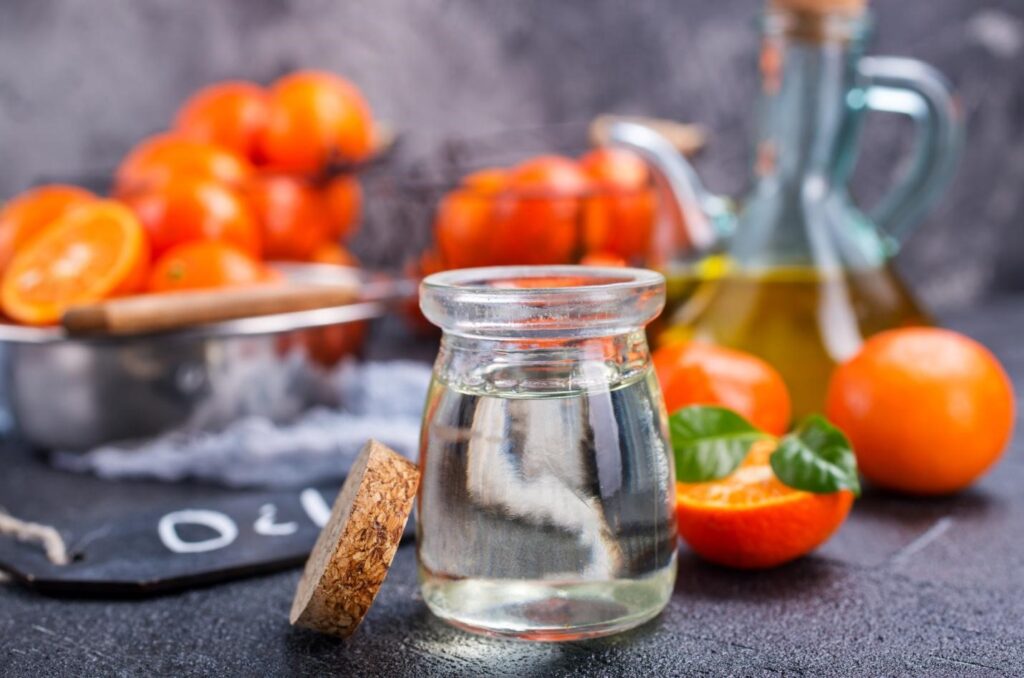Food, cosmetics, and pharmaceuticals rely heavily on vegetable glycerin. It is often made from corn, soybean or coconut oils, and is commonly referred to as glycerin, glycerol or glycerol. The syrup-like consistency and mild, sweet taste make it odorless.
In addition to cosmetics, vegetable glycerin serves several other purposes. Additionally, it may improve skin health, hydrate the body, and strengthen the intestinal tract.
|
Key points
|
Healthy Skin
Due to its humectant properties, glycerin is able to retain moisture in the skin. Suitable for moisturizing the stratum corneum of the skin, glycerin diffuses into a layer of the skin called the stratum corneum. Topical products are often formulated with glycerin for this reason.
The use of glycerin has been shown to alleviate skin dryness in some studies, and another study has shown that it can also improve the skin’s barrier function. In order to maintain skin health, it is essential to maintain moisture and skin barrier function.
In addition to being irritant and anti-inflammatory, glycerin may also be anti-irritant in a 2015 mouse study.
Humectant And Emollient Properties Of Glycerin
In cosmetics, glycerin acts as a humectants as one of its primary functions. Water molecules are drawn to humectants by the skin, and they can also be drawn by the skin from deeper layers, depending on the aridity of the air. The stratum corneum (the epidermis’ outermost layer) is visibly plumped when applying topical skincare containing glycerin.
The emollient properties of glycerin make it similar to emollients, as it soothes and softens the skin. In emulsion formulations, where it helps maintain the skin’s suppleness, softness, and hydration, it is well suited to strengthen the properties of occlusives and emollients.
Vegetable Glycerin As a Moisturizer
Glycerin might be useful as a moisturizer, but because it is thick, only using it on the face might not be a good idea. Acne and pimples may be caused by it because it attracts dust. It is always a good idea to dilute it. Apply it to the face after dilution with water or rose water.
|
Glycerine For Acne Prone Skin It is an excellent cleanser for acne-prone skin because it does not add oil or clog pores. Glycerine-based facial cleansers can be used on skin of all types without drying it out. |
Face Pack
With regular application of glycerin and rosewater, the complexion is even and radiance is imparted. Gram flour (besan) face packs are very popular among Indian women during the winter. A powerful moisturizing pack is created by mixing gram flour with milk or curds. In combination with rose water and glycerin, the gram flour pack becomes a one-stop solution for all skin care problems brought on by the onset of winter. You can also combine glycerin and rosewater with fuller’s earth, also known as Multani mitti in India, or bentonite clay to make a face pack.
|
Vegetable Glycerin vs. Glycerin Unlike animal glycerin, vegetable glycerin comes from plants, making it suitable for vegans. The sweet flavor and moisturizing properties of vegetable glycerin make it a popular ingredient in many products. |
Cleansing with Glycerin
By cleansing the skin without clogging pores, allowing the skin to absorb other beneficial active ingredients in natural products, smoothing fine lines, miniscule cracks, encouraging the regeneration of new skin, evening out skin tone, lightening darker areas, and diminishing the appearance of spots and marks, vegetable glycerine facilitates the absorption of other beneficial active ingredients in natural products.
Lets prepare glycerine cleansers! In an ovenproof glass jar, mix half a cup of water with one and half tablespoon glycerin and cornflour to make a homemade facial cleanser. Until the mixture looks clear, bring it to a boil. Apply a little of the mixture to moist skin and wash out with warm water once it has cooled.
Vegetable Glycerine For Lips
Glycerine Removes Dead Skin Cells and Flakes From Your Lips
You can nourish your lips by applying a thin coat of glycerine every day.
Besides keeping your lips hydrated, glycerine will form a protective layer to prevent environmental irritation.
Glycerine can correct pigmented lips, making them look more appealing. In a short period of time, it will help restore the natural colour of the lips.
Medicinal Uses
By protecting the skin and scalp from harmful bacteria, regulating oil production, soothing itching, eliminating congestion in the pores, nourishing dull, unhealthy skin and hair, maintaining skin and hair elasticity, and contributing to sun protection against UV radiation, vegetable glycerine protects the skin and scalp from damaging bacteria.
In addition to cooling, soothing, and facilitating healing, vegetable glycerine is used to treat scratching, cuts, blemishes, burns, itching, hives, rashes, sores, eczema, psoriasis, and other conditions characterized by dryness, itching, or inflammation on the skin. Environmental contaminants and pollutants are shielded from the skin by this barrier.
The use of Vegetable Glycerine topically will soften, smooth, and soothe the skin, locking moisture in. Since it has a pH level close to that of the skin, it is gentle enough to use on sensitive skin and on babies.
When should you Avoid Using Glycerine On Your Face?
It is possible for undiluted glycerin to cause blistering in some cases, and some conditions can cause the skin to become dehydrated. Skin that doesn’t suffer from allergic reactions can be treated by glycerine. Glycerin should not be used directly on sensitive skin. It should always be diluted. There is a possibility that glycerin can cause sun sensitivity.
If you experience any itchiness or redness after applying a glycerin-based product to your skin, stop using the product immediately and consult a physician.



